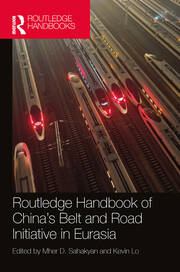New Publication! | Sino-Russian Cybersecurity Cooperation in a Multipolar World Order. Implications for the Digital Silk Road

Sino-Russian Cybersecurity Cooperation in a Multipolar World Order
The Internet & Communication Policy Center (ICPC) highlights a new chapter by Grace X. Yang on the evolving dynamics of Sino-Russian cybersecurity cooperation and its implications for the Digital Silk Road.
This chapter makes a comprehensive analysis of the Sino-Russian cybersecurity cooperation and its implications on the Digital Silk Road (DSR), the digital dimension of China’s Belt and Road Initiative (BRI), in the context of the Multipolar World Order 2.0. It explores the fundamental basis and strategic drivers behind this bilateral cybersecurity collaboration, with a focus on the crucial role of the Shanghai Cooperation Organisation (SCO) in diffusing cyber norms and cybersecurity best practices and expanding the DSR.
By examining the nature of the Sino-Russian cybersecurity collaboration, this chapter offers a detailed perspective on how this partnership shapes and refines cybersecurity norms and practices at a global level but also has a significant impact on the regional level, especially among SCO member states and its partners. The chapter argues that Sino-Russian cybersecurity cooperation represents a Realist strategic alignment aimed at challenging US dominance in the global digital order. The SCO acts as a critical platform for promoting their shared vision of cyber sovereignty and advancing China’s DSR initiatives throughout the region.
However, similar to other Realist partnerships, this cooperation is constrained by differing national priorities and core interests, underlying mutual distrust, power asymmetry, and the changing geopolitical dynamics of the Multipolar World Order 2.0. These challenges bring questions about the depth and durability of their cooperation, making its future uncertain.
This chapter concludes by examining the complexities of Sino-Russian cybersecurity cooperation in the digital sphere and its critical implications for the Digital Silk Road in the era of the Multipolar World Order 2.0, offering insights into the future of digital development in Eurasia.



Comments are closed, but trackbacks and pingbacks are open.